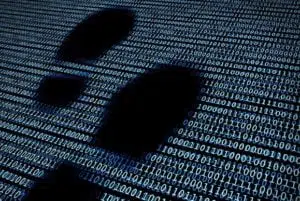 What is digital forensics all about?
What is digital forensics all about?
We live and eat digital almost 24 hours 7 days a week. We use computers, make phone calls, send text messages, use social media, watch smart TVs, wear smart watches and in the very near future will drive fully connected self-drive smart cars. Some people already live in smart homes with integrated smart kitchens, sound, heating, lighting and security systems with at least one or several intelligent household self-ordering fridges and washing machines which can be controlled and monitored by your smart phone at home or on the go.
Modern life generates a lot of digital footprint
By using all these technologies, we leave digital footprints and they are everywhere even if you try to hide them. All the data produced by using all these devices can be extremely important in proving or disproving your guilt with a high degree of accuracy and limits your ability to be economical with the truth. Next time think carefully when you tell your wife you were with a friend last night when you came home late. If she wants, she easily hire someone to find out where exactly you were and to whom you were communicating with all the detailed timings.
I am sure by now you can understand how digital evidence is so critical in computer forensics investigations. The scale of our digital footprint has now spread to the cloud which means pictures you take, messages you send and even meta data of your voice conversations are up for grabs with appropriate licence.
Digital Forensics In Corporate Environments
In a corporate environment, the situation is far worse as almost everything is controlled and monitored and logs are recorded for compliance or security reasons. Corporations use the power of digital forensics and electronic discovery to ensure compliance with government regulations as well as having full control on how company data is used and consequently prevent any data leakage and breaches. Digital investigators can always rely on this pool of data to provide evidence for use in tribunals, courts and legal battles corporate bodies have with their competitors and non-compliant contractors and employees. Digital forensics analysts use this vast array of data stored in databases, server logs, contacts, contracts, employee data, emails, recorded telephone conversations, text messages, internet searches, company web portals, social media and so on to dig out all the relevant digital evidence, analyse and report on it.
 What is digital forensics all about?
What is digital forensics all about?